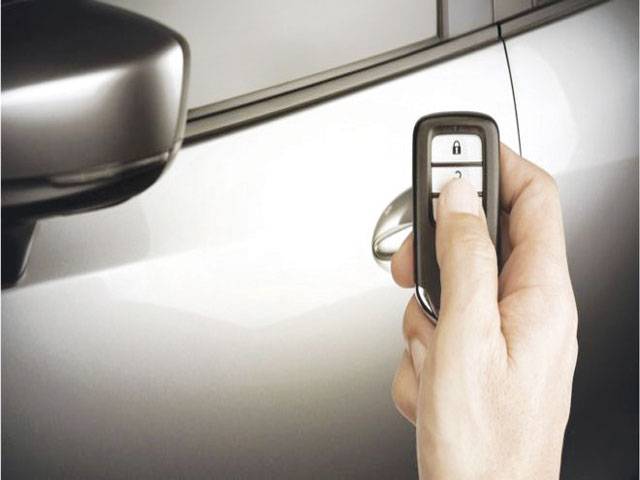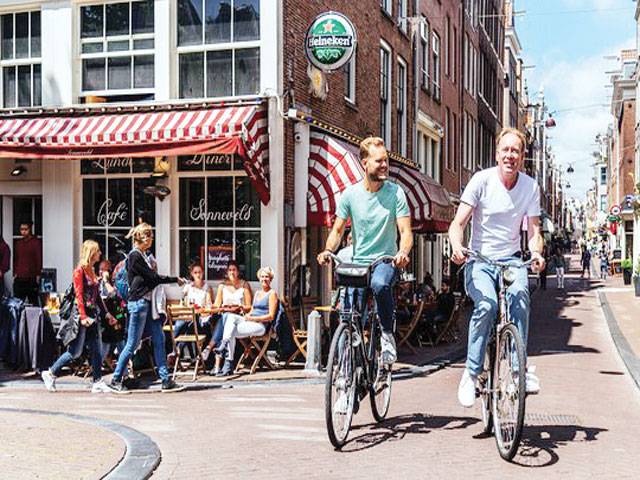Man killed by Lexus car being remotely started
NEW YORK - A New York man has died after being crushed by an empty car accidentally started by remote control. Michael Kosanovich, 21, had been standing between two parked 2002 Lexus IS300s, on 6 December, when one of them had been started remotely by its owner, police said. The car rolled forward and he was pinned between the two vehicles.
Bystanders tried to push them apart but as they did so, the car rolled forward and crushed him again.
Mr Kosanovich was taken to hospital with severe trauma to his torso and legs, according to the New York Police Department (NYPD). He died of his injuries on 7 December.
The NYPD said Mr Kosanovich had been inspecting one of the vehicles at the time of the accident, intending to buy it.
A spokeswoman for Toyota Motor North America told BBC News: “Our deepest sympathy goes out to the family and friends of Michael Kosanovich. “Although many details are unknown at this time, we have reached out to local law enforcement to offer support in the investigation.”
Toyota added that Lexus “did not offer a factory-installed remote start in the 2002 IS” car model. This would suggest such a remote ignition system would have needed to be retrofitted to work with the 2002 Lexus IS300.
The system’s instruction manual warns users they should never remotely start the engine if they are “unaware of the circumstances surrounding the vehicle” as it could pose a threat to the lives of anyone in the car’s vicinity.
Amsterdam’s bicycle mayor thinks cycling could save the world
AMSTERDAM - Bicycles are the common thread that links “all the dots” in Katelijne Boerma’s life.
The 45-year-old sports teacher and program manager at the University of Amsterdam chose to study, live, and raise her family in the Dutch capital because she wanted to be able to bike every day. In 2017, Boerma saw an ad in a newspaper inviting people to run for the unusual position of “bicycle mayor.” The position is part of the Bicycle Mayor & Leaders Network, run by bike advocacy organization BYCS. The goal of the network is to elect individuals committed to making every city more bicycle-friendly by working with civil society groups and municipal governments.
Boerma remembers thinking when she read the ad that it was perfect fit for her. “I am the mom, I am the professional, I…have that very busy life and the way I connect all these tasks or challenges on a daily basis is because of the bicycle,” she explains. She decided to run for Amsterdam’s bicycle mayor, which meant writing a letter of motivation and giving a presentation to a technical advisory committee made up of the city’s real mayor and members of the transit authorities.
In November 2017, Boerma became Amsterdam’s second bicycle mayor, having run on a platform of turning everyone, especially parents and toddlers, into cyclists.
Amsterdam is known as the bicycle capital of the world because of its cyclist-friendly culture and infrastructure, including more than 500 kilometers of cycle paths and lanes. Nearly half the working population of the city commutes daily by bike. But it wasn’t always this way. In the 1950s and 60s, the city was “in thrall to motorists,” according to The Guardian, and it was only after traffic casualties rose that activists managed to insist on a change in transit policies. The oil crisis of the 70s also made fuel more expensive and led to a push for energy conservation.
Now, says Boerma, bicycle mayors have spread to 91 cities—a global movement powered by the idea that “if Amsterdam can do it, any city in the world can do it.”
For Boerma and other bicycle mayors, cycling is about more than mobility. It’s about improving public health, reducing air pollution, fostering human connection, and raising independent children. That’s why she argues that “bicycles could save the world.”







